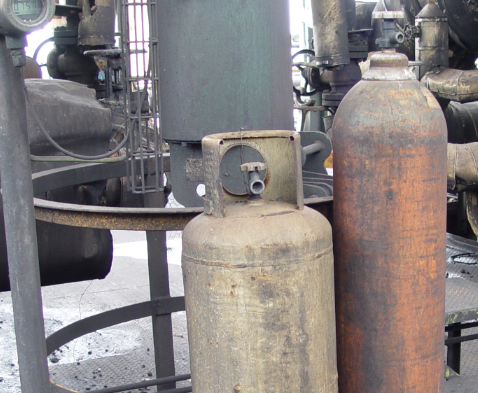Safety is my passion! After scores of “cold eye reviews” and safety audits, I continue to see many management teams that are unaware of the actual day-to-day production issues in the field. In an interesting article for RefinerLink, blogger Ralph Laurel states that “being a supervisor or a manager doesn’t automatically make you a leader.”
We at the Refining Community agree. Being a leader doesn’t come with your title, it’s earned. It embodies the manager/supervisor who works to create a safe environment not only for himself but also for the rest of the people that work in his unit. I realize how busy the management team is and how precarious the balance is between profitable production and safe production. I get it. So instead of just point out what is wrong, I want to make some suggestions, give you “tools for your toolbox”, so to speak.
In this first installment of 4 articles, I want to feature the seven points made in Ralph Laurel’s article. Sometimes it is just this simple.
1. Find a balance between being liked and being feared
You can’t be the best friend but likely don’t want to be hated either. It’s a little bit like being a parent. Being liked, and more importantly respected, make it easier to motivate your direct reports and to get them to do what you need. At the same time, if they’re not afraid of the repercussions of not meeting deadlines or following directions it may result in an environment where there is no sense of urgency to keep thinks on track.
2. If something doesn’t feel right, don’t be afraid to ask questions
The biggest responsibility you have as a leader is to ask questions. Even if you don’t have any knowledge or experience with the given topic your question may lead to the discovery of a potential hazard. Major safety and reliability events can often be prevented by someone willing to ask a few questions. Don;t be afraid of appearing unknowledgeable and risk a major incident.
3. Fight for your people
As a supervisor you work for your people as much as they work for you. Whether it’s fighting for equipment that makes their job safer or fighting for more recognition for the work they’ve done, this is something you owe them. If you fight for them, they will likely fight for you.
4. Don’t use generic one-liners as substitutes for real guidance
Phrases like “be creative” or ” let’s make sure we understand what happened” add no value. People don’t need to be told to be creative and most realize that if something has gone wrong, it’s probably good to understand what happened. If your comments don’t tell your team anything they don’t already know, don’t say anything. Just because you’re a supervisor doesn’t mean you have to fill the silence. Work with your people and try to understand the challenges they face. And then help them remove that obstacles that present themselves. Be part of the solution.
5. Make the tough decisions
Leaders make tough decisions. Not always the favored one, and not always the one that makes you look good. The worst think for an organization is to have “leadership” not willing to make decisions and putting off tough choices in anticipation of a magic solutions.
6. Push back and voice your disagreements with direction from above
Don’t hesitate to speak up in fear of how that impacts your personal appearance. As a leader, your duty is to your team. And you are their voice to those higher in the organization. This doesn’t mean you have to disagree with everything, but it does mean pushing back when there are good reasons to. Support your arguments with facts and reason. Again, your’re not a leader if all your’re doing is following.
7. Don’t forget where you came from
No matter how high up the ladder you climb, don’t take yourself too seriously. Remember the people that helped you along the way and don’t forget what it was like when you first started out. Value the opinions and feelings of those in your organization and treat others with the respect they deserve. This seems pretty basic but it’s something that many leaders forget about.
Through my many years of working within different refinery sites, producing RefComm Safety Conferences, and teaching DCU Fundamental Training Courses, the #1 complaint I hear is that management doesn’t respond quickly or at all to the operators’ issues. This leads to a breakdown in effective procedure that can eventually lead to an incident. You cannot expect your staff to take “ownership of safety” if there is no commitment by management to address the safety issues. It’s not only about exuding authority but also about listening to your people and responding to their concerns, ideas for improvement, and safety issues.
Lead on!








Leave a Reply
You must be logged in to post a comment.